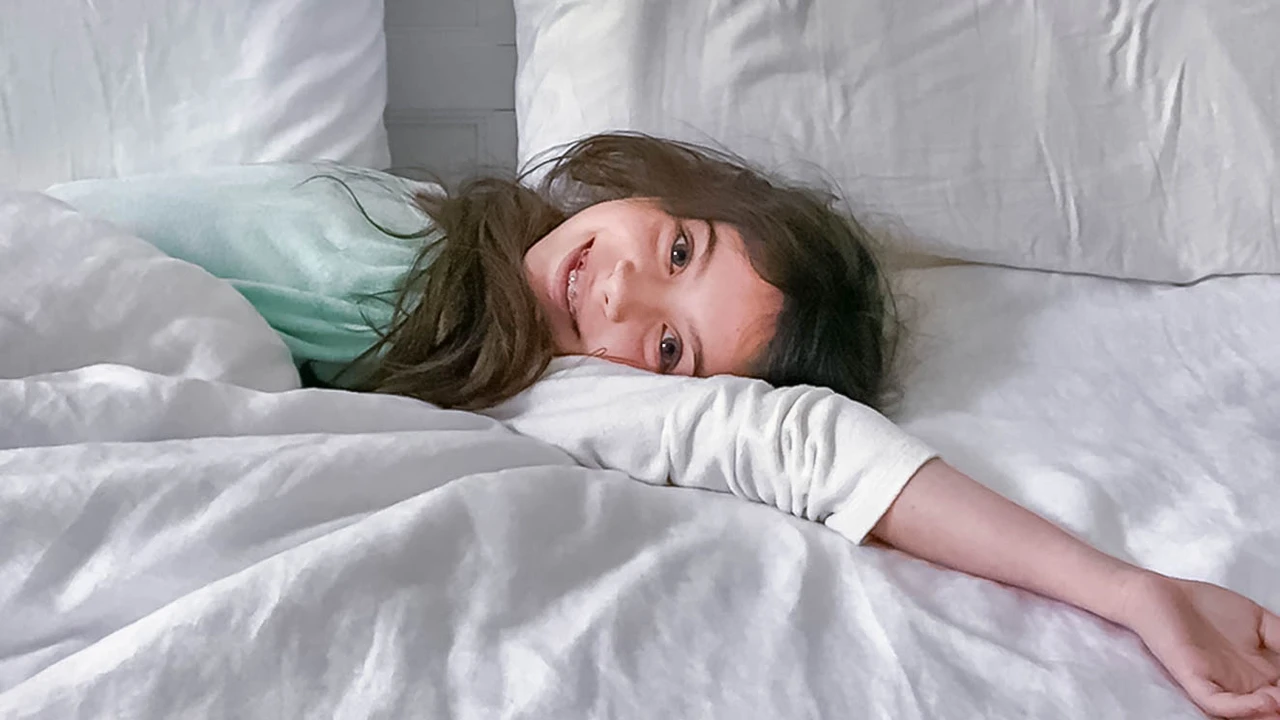Foods to Avoid Before Bed: Disrupting Your Sleep
Sample meta description.

Understanding the Impact of Diet on Sleep Quality Sleep Science Explained
Hey there! Ever wonder why you toss and turn after that late-night snack? It's not just in your head. What you eat, especially before bed, can seriously mess with your sleep. We're diving deep into the foods that might be sabotaging your Zzz's and what you can do about it.
The Usual Suspects Common Foods That Hinder Sleep
Let's start with the obvious culprits. These are the foods that are generally known to cause sleep problems.
Caffeine: The Sleep Stealer
Yeah, you knew this was coming. Caffeine is a stimulant, plain and simple. It blocks adenosine, a neurotransmitter that promotes relaxation and sleepiness. Think of adenosine as your body's "slow-down" signal. Caffeine hijacks that signal and keeps you wired. Coffee is the biggest offender, but remember caffeine is hiding in other places too. Energy drinks, soda, and even some teas (like black and green tea) are loaded with it.
Alcohol: A False Sense of Security
Okay, alcohol *might* make you feel sleepy initially, but it's a total trickster. It disrupts your sleep cycle, especially later in the night. You might fall asleep faster, but you'll likely wake up more frequently and experience lighter, less restful sleep. Plus, alcohol can worsen snoring and sleep apnea. Not a good combo for a good night's rest!
Spicy Foods: Nighttime Fire Alarm
Love a late-night curry? Your stomach might not. Spicy foods can cause heartburn and indigestion, which are definitely not conducive to sleep. The capsaicin in chili peppers can also raise your body temperature, making it harder to fall asleep.
Fatty Foods: Digestion Nightmare
Think burgers, fries, pizza… all those delicious, greasy foods. They take a long time to digest, which means your body is working overtime while you're trying to sleep. This can lead to bloating, heartburn, and general discomfort, making it hard to relax and drift off.
Sugary Foods: Blood Sugar Rollercoaster
Candy, cookies, ice cream… these sugary treats cause a rapid spike in blood sugar, followed by a crash. This rollercoaster can disrupt your sleep and lead to nighttime awakenings. Plus, sugar can interfere with the production of melatonin, the hormone that regulates sleep.
Beyond the Obvious Sneaky Sleep Disruptors You Might Not Know About
So, you're avoiding caffeine, alcohol, and spicy food. Great! But there are some less obvious foods that might still be messing with your sleep.
Chocolate: The Caffeinated Treat
Yes, even chocolate! Dark chocolate contains caffeine, and all chocolate contains theobromine, another stimulant. The darker the chocolate, the more stimulants it contains. A small piece of milk chocolate might be okay, but avoid large quantities or dark chocolate before bed.
Cheese: Not Always a Dreamy Snack
Cheese is a tricky one. Some cheeses contain tyramine, an amino acid that can stimulate the brain and keep you awake. Aged cheeses like cheddar, parmesan, and Swiss are higher in tyramine. If you're sensitive to tyramine, avoid these cheeses before bed.
Processed Meats: Hidden Additives
Processed meats like bacon, sausage, and deli meats often contain additives like nitrates and nitrites. These additives can disrupt sleep and trigger headaches in some people.
Citrus Fruits: Acid Reflux Alert
Citrus fruits like oranges, grapefruits, and lemons are acidic. Eating them before bed can trigger heartburn and acid reflux, which can make it hard to sleep.
Tomatoes: Another Acid Culprit
Like citrus fruits, tomatoes are acidic and can trigger heartburn and acid reflux. Avoid tomato-based sauces and dishes before bed.
The Science Behind Sleep and Diet Understanding the Connection
Why do these foods affect sleep so much? It's all about how our bodies process food and how that impacts our brain and hormones.
The Gut-Brain Connection
Our gut and brain are closely connected. What we eat affects the bacteria in our gut, which in turn can influence our mood, sleep, and overall health. Eating unhealthy foods before bed can disrupt the gut microbiome and lead to inflammation, which can interfere with sleep.
Hormonal Imbalance
Certain foods can affect the production of hormones that regulate sleep, such as melatonin and serotonin. Eating sugary foods, for example, can interfere with melatonin production. Consuming foods high in tryptophan (like turkey) can promote serotonin production, which can help you relax and fall asleep.
Digestion and Sleep
Digesting food requires energy. Eating a large meal or foods that are difficult to digest before bed can keep your body working overtime, making it harder to relax and fall asleep. It's best to give your body a few hours to digest before hitting the hay.
Better Bedtime Snacks Foods That Promote Sleep
Okay, so we've covered what to avoid. But what *can* you eat before bed that will actually help you sleep?
Tart Cherries: Melatonin Powerhouse
Tart cherries are a natural source of melatonin. Studies have shown that drinking tart cherry juice can improve sleep quality and duration. Look for 100% tart cherry juice with no added sugar.
Almonds: Magnesium Magic
Almonds are a good source of magnesium, a mineral that helps relax muscles and promote sleep. A small handful of almonds before bed can be a helpful snack.
Kiwi: Antioxidant and Serotonin Boost
Kiwis are rich in antioxidants and serotonin. Studies have shown that eating two kiwis before bed can improve sleep onset, duration, and efficiency.
Warm Milk: A Classic for a Reason
Warm milk contains tryptophan, an amino acid that can promote serotonin production. The warmth of the milk can also be soothing and relaxing.
Chamomile Tea: Calming and Relaxing
Chamomile tea is known for its calming and relaxing properties. It contains apigenin, an antioxidant that binds to certain receptors in the brain that promote sleepiness.
Product Recommendations for Better Sleep Through Diet
Alright, let's get practical. Here are some specific product recommendations to help you optimize your diet for better sleep. We'll cover different options, their uses, comparisons, and price points.
Tart Cherry Juice Concentrate: Lakewood Organic Pure Tart Cherry Juice
Use: Drink 1-2 ounces of concentrate mixed with water about an hour before bed. Good for those who struggle to fall asleep or stay asleep.
Comparison: Lakewood is known for its purity and lack of additives. Other brands may contain added sugar or preservatives. Compare labels carefully!
Price: Around $15-$20 per 32-ounce bottle.
Magnesium Supplements: Natural Vitality Calm Magnesium Powder
Use: Mix one teaspoon with warm water about an hour before bed. Helps with muscle relaxation and reducing anxiety.
Comparison: Calm is a popular magnesium citrate powder known for its absorbability. Other forms of magnesium, like magnesium oxide, are less well absorbed. Magnesium glycinate is another good option.
Price: Around $25-$30 per 16-ounce container.
Chamomile Tea: Traditional Medicinals Organic Chamomile Tea
Use: Steep one tea bag in hot water for 10-15 minutes before bed. Provides a calming and relaxing effect.
Comparison: Traditional Medicinals is known for its high-quality organic herbs. Other chamomile teas may be less potent or contain additives. Look for organic options to avoid pesticides.
Price: Around $5-$7 per box of 16 tea bags.
Sleep Promoting Protein Powder: Garden of Life Raw Organic Protein & Greens
Use: Mix one scoop with water or almond milk before bed. This protein powder is low in sugar, contains magnesium, and is designed to be digested quickly, making it a good sleep aid.
Comparison: Many other protein powders are high in sugar or contain additives that disrupt sleep. Garden of Life uses only organic ingredients and has no added sugars.
Price: Around $40-$50 per 20-serving container.
Lifestyle Adjustments to Enhance Sleep Besides Your Diet
It's not *just* about what you eat. Your overall lifestyle plays a huge role in your sleep quality.
Create a Relaxing Bedtime Routine
A consistent bedtime routine signals to your body that it's time to sleep. This could include taking a warm bath, reading a book (a real book, not on a screen!), or listening to calming music.
Optimize Your Sleep Environment
Make sure your bedroom is dark, quiet, and cool. Use blackout curtains, earplugs, or a white noise machine if needed. A comfortable mattress and pillows are also essential.
Limit Screen Time Before Bed
The blue light emitted from electronic devices can interfere with melatonin production. Avoid using your phone, tablet, or computer for at least an hour before bed.
Regular Exercise
Regular exercise can improve sleep quality, but avoid exercising too close to bedtime. A moderate workout in the morning or afternoon is ideal.
Manage Stress
Stress can wreak havoc on sleep. Find healthy ways to manage stress, such as yoga, meditation, or spending time in nature.
When to Seek Professional Help For Sleep Disorders
If you've tried making dietary and lifestyle changes and you're still struggling with sleep, it's time to seek professional help. You might have an underlying sleep disorder, such as insomnia, sleep apnea, or restless legs syndrome.
A doctor or sleep specialist can diagnose your condition and recommend appropriate treatment options, which may include medication, therapy, or lifestyle changes.
:max_bytes(150000):strip_icc()/277019-baked-pork-chops-with-cream-of-mushroom-soup-DDMFS-beauty-4x3-BG-7505-5762b731cf30447d9cbbbbbf387beafa.jpg)




: Causes and Treatments.webp)
: Causes and Treatments.webp)
